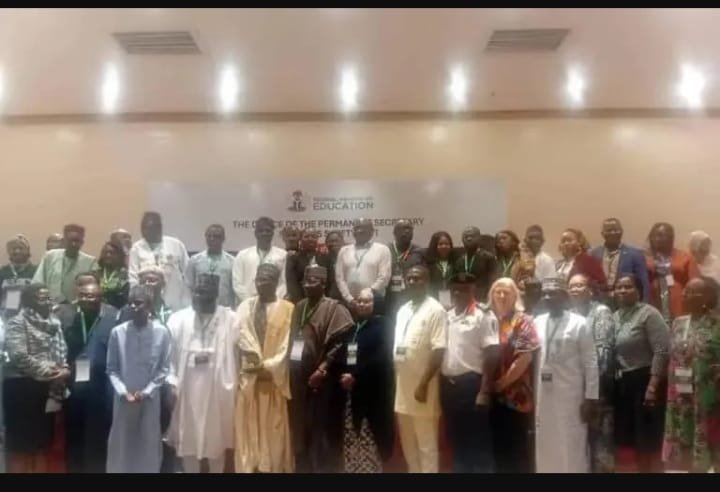
By Ihotu Uriel
The Federal Ministry of Education has restated Nigeria’s strong commitment to making schools safe havens for learning and growth, as the country joined the world to mark the International Day to Protect Education from Attack. The event, themed “Challenging Narratives and Reshaping Actions,” brought together government officials, development partners, and stakeholders to push for united action in defending the right to education.
Speaking on behalf of the Permanent Secretary of the Ministry, Mr. Abel O. Enitan, the Director of Human Resource Management, Mr. Yusuf Saheed, said insecurity in schools must never be normalized. He stressed that under President Bola Ahmed Tinubu’s Renewed Hope Agenda, education remains central to national development, with safety integrated into infrastructure, emergency response, psychosocial support, and community engagement. “Every child deserves to learn in peace, and teachers must work free from fear,” he declared.
Director of Schools Safety, Mr. Hussaini Aliyu Abdullahi, welcomed participants, noting that protecting schools is a shared responsibility and a national priority. He explained that the Ministry is shifting from reactive responses to proactive measures through the Safe Schools Programme. Activities marking the day included cultural performances by students, safety sensitization campaigns in FCT schools, and visits to security agencies including the National Safe Schools Response Coordination Centre (NSSRCC), the Nigeria Security and Civil Defence Corps (NSCDC), and the Schools Protection Squad of the Nigeria Police Force.
Partners also reaffirmed their support. Representing the UK’s Foreign, Commonwealth & Development Office (FCDO) under the PLANE programme, Ms. Amy Oyekunle emphasized that “education is a right, not a privilege” and must remain accessible even in crises. She highlighted PLANE’s interventions in Kaduna, Kano, and Jigawa, supporting the National Policy on Safety, Security, and Violence-Free Schools since 2021.
UNICEF Chief of Education, Ms. Vanessa Lee, pledged continued collaboration with the Federal Government, UBEC, and state governments, stressing the importance of equipping teachers, strengthening school-based management committees, and ensuring policies deliver real impact.
Providing an overview of progress since Nigeria endorsed the Safe Schools Declaration in 2015, Deputy Director at the Ministry, Mr. Achede Joseph O., listed major milestones: the 2021 launch of the national policy, establishment of the NSSRCC under the NSCDC, creation of state steering committees, and nationwide training of officials. He acknowledged challenges such as limited funding, weak infrastructure, and persistent insecurity, but stressed that sustained political will and dedicated budgets are key to success.
UNICEF Education Specialist, Mr. Believe O. Eke, reinforced the need for stronger child protection, inclusive learning, and grassroots-focused implementation. He called for innovative and coordinated approaches to ensure schools remain resilient in the face of threats.
Closing the event, the Ministry of Education reaffirmed that safeguarding education is both a shared responsibility and a national imperative. “By securing schools today, Nigeria is securing the future of its children and laying the foundation for peace, resilience, and sustainable development,” the statement read.









**mitolyn official**
Mitolyn is a carefully developed, plant-based formula created to help support metabolic efficiency and encourage healthy, lasting weight management.